Safety First for North Carolina Agriculture Industry
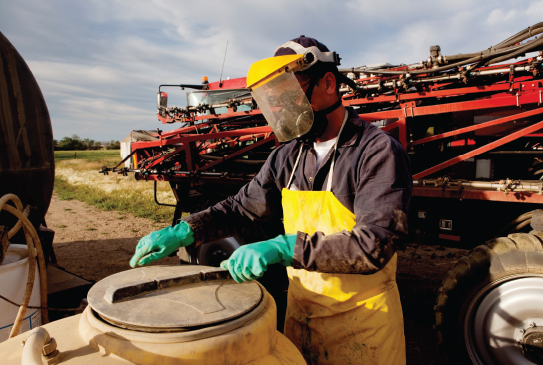
The N.C. Agromedicine Institute conducts and promotes research, intervention, outreach and education to improve the health and safety of the agricultural community.
Working around live animals and powerful machinery just comes with the territory for a North Carolina farmer, fisher or forester. However, leaders and experts throughout the state are putting more emphasis on safety to ensure these individuals can keep their health and livelihoods intact.
 The N.C. Agromedicine Institute conducts and promotes research, intervention, outreach and education to improve the health and safety of the agricultural community including farmers, farm workers, foresters, fishers and their families. Member universities are East Carolina University, North Carolina State University and North Carolina A&T State University.
The N.C. Agromedicine Institute conducts and promotes research, intervention, outreach and education to improve the health and safety of the agricultural community including farmers, farm workers, foresters, fishers and their families. Member universities are East Carolina University, North Carolina State University and North Carolina A&T State University.
Robin Tutor-Marcom is director of the N.C. Agromedicine Institute, project manager of the AgriSafe Network of North Carolina and adjunct professor of public health in the Brody School of Medicine at East Carolina University.
Tutor-Marcom says the Institute was planned more than 20 years ago, by organizers who saw the issue of farm injuries as a significant one.
“The concept was that ECU has medicine. N.C. State has extension. If we could develop best practices for reducing injuries for farmers, fishers and foresters at the university and then be able to disseminate that through extension and through local healthcare providers, that would be a great thing,” Tutor-Marcom says.
The mission of the North Carolina Agromedicine Institute is to promote the health and safety of farmers, fishers, foresters, their workers and their families. The staff believes in empowering rural communities to address the issues of health and safety successfully and striving to save lives by:
- Reducing injuries and preventing chronic diseases and health problems.
- Supporting safe and healthy agricultural working and living environments.
- Educating farmers, fishers, foresters, farm workers and their families about health safety.
“For us to have an increased awareness of the issue across the state, to me that’s the most important thing,” Tutor-Marcom says. “We now have farmers from Camden to Macon, from Ashe to Bladen, and other relationships with people across the state who are joining us to address the issues of farm safety and health.
“Most of the focus is on commodities and how we get more yield per acre, more pound on the animal, how we’re more efficient. But we’re not talking about the producer and the workers and their families,” she says. “To me, farm sustainability is to take care of the farmer. If we have a farmer who has a fatal accident or catastrophic health event, there’s a good chance that farm is going out of business. Nothing we do is done in isolation. Everything we do is done in partnership with other agencies, organizers as well as the farmers, fishers and foresters themselves.”
The N.C. Agromedicine Institute has several programs and initiatives to accomplish its goals.
 AgriSafe of North Carolina
AgriSafe of North Carolina
AgriSafe of North Carolina was adapted in 2008 from the national AgriSafe Network in partnership with CommWell Health (formerly Tri-County Community Health Center). AgriSafe of North Carolina enables the Institute to fulfill its mission of promoting the health and safety of North Carolina farms by establishing preventative health services, supporting a network of clinics and health providers, along with health and safety education, tailored to on-farm exposures and work conditions.
Health screenings include blood pressure, blood glucose, vision, hearing, height/weight, and lung function. Health and safety education is provided individually during health visits and through community events.
Topics include prevention of respiratory illness, heat stress, skin cancer, hearing loss, pesticide exposure, machine injuries and fatalities, animal injuries, and child injuries and fatalities.
AgrisSafe providers assist farmers in selecting and fit-testing the appropriate personal protective equipment, such as respirators and gloves, for their health condition and specific farm tasks. Services are provided at locations and times convenient to farms, including Cooperative Extension offices, Farm Bureau events, farm safety days, annual commodity meetings, agribuisnesses,and most importantly on individual farms.
Since its inception, the AgriSafe of NC program has served more than 3,800 people from 46 North Carolina counties and six additional states.
Certified Safe Farm
In 2009, the N.C. Tobacco Trust Fund Commission funded a three-year grant to N.C. State University’s Agricultural Foundation and N.C. Cooperative Extension, in collaboration with the N.C. Agromedicine Institute, to establish Certified Safe Farm of North Carolina in three pilot counties: Duplin, Johnston and Sampson.
Developed by Iowa’s Center for Agricultural Safety and Health, the Certified Safe Farm program combines an on-farm safety review, occupational health review conducted by an AgriSafe health provider, education with the farmer, and incentives. The goals of the program are to save lives, prevent injury, improve health, and lower safety and health costs.
The Certified Safe Farm of N.C. program provides farms and nursery operations with an on-site safety review conducted by a cooperative extension county agriculture agent with special training in safety.
Using Iowa’s validated safety checklist with adaptations for N.C. agriculture, extension agents walk the farm with the farmer, identifying hazards and providing guidance on how to make safety improvements. Equipment, livestock and storage structures, and chemical storage are some of the many areas reviewed.
Certified Safe Farm and AgriSafe of N.C. are collaborative programs. County extension agents and local AgriSafe health providers consult with one another on agricultural safety issues, personal protective equipment recommendations, and outreach and education events.
Farms that participate in both the Certified Safe Farm review and an AgriSafe occupational health and wellness review are deemed Gold Star Certified Safe Farms, while those completing only the safety review are deemed Certified Safe Farms.
Community recognition is also an incentive. Farms with passing scores of 85 precent or more receive recognition signs for their farm entrance and shop.
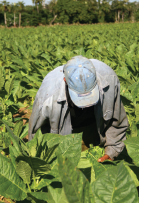 NC AgrAbility Partnership
NC AgrAbility Partnership
The NC AgrAbility Partnership is part of the federally funded AgrAbility program through the U.S. Department of Agriculture National Institute of Food and Agriculture (USDA NIFA). The AgrAbility program consists of a national project and individually funded state or regional projects.
The mission of NC AgrAbility is to educate and assist farmers and ranchers engaged in production agriculture who are living with disabilities to enable them to stay actively engaged in production agriculture, agriculture-related occupations and daily life.
NC AgrAbility works to improve the quality of life for these individuals by helping to eliminate or minimize obstacles that limit independence and productivity in agriculture.
Like the unique agricultural diversity of North Carolina, NC AgrAbility has a wide variety of services to offer thanks to the many specialties of our partners. Through education, support and assistance, AgrAbility helps to eliminate, or at least minimize, obstacles that inhibit ability to work in production agriculture. AgrAbility serves individuals who are limited by any type of physical, mental, or health-related disability. AgrAbility services are provided at no cost to the farmer and include:
- Conducting on-site assessments to identify barriers to completing tasks both in the agricultural workplace and in the home.
- Recommending appropriate assistive technologies, modified work practices and/or other solutions to reduce disability-related limitations.
- Providing access to informational materials on a variety of topics related to disability and agriculture.
- Providing education and training opportunities through workshops, conferences, seminars and online programs.
- Making referrals to other service providers for potential assistance—financial, rehabilitative or educational—specific to the farmer’s needs.
- Arranging for peer support opportunities that connect consumers with other farmers who have successfully accommodated their disabilities.
Farm Safety and Health Week
Earlier this fall, the N.C. Agromedicine Institute joined with the N.C. Department of Agriculture and Consumer Services and N.C. Cooperative Extension to facilitate a proclamation from Gov. Pat McCrory naming Sept. 15-21 Farm Safety and Health Week in North Carolina. The proclamation highlighted several facts:
- Agriculture and agribusiness is the top industry in North Carolina providing more than $77 billion in revenue, of which $14.9 billion comes directly from farm production.
- North Carolina leads the nation in the production of sweet potatoes and tobacco and is second in the production of pork, trout, poultry, eggs and Christmas trees.
- Individuals working in production agriculture face significant risks every day to provide food, fiber, biofuels and other necessities.
- Farm work often involves hazardous exposure to machinery, chemicals, livestock and workplace environments.
- Some at higher risk include youth, older workers and individuals with limited literacy and language proficiency.
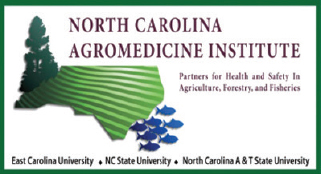
N.C. Agromedicine Institute
East Carolina University
1157 VOA Site C Road
Greenville, N.C. 27834
(252) 744-1008
www.ncagromedicine.org





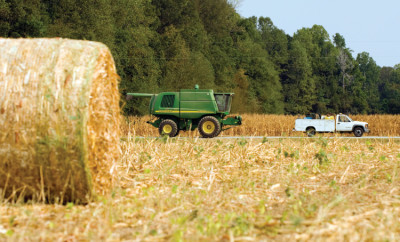
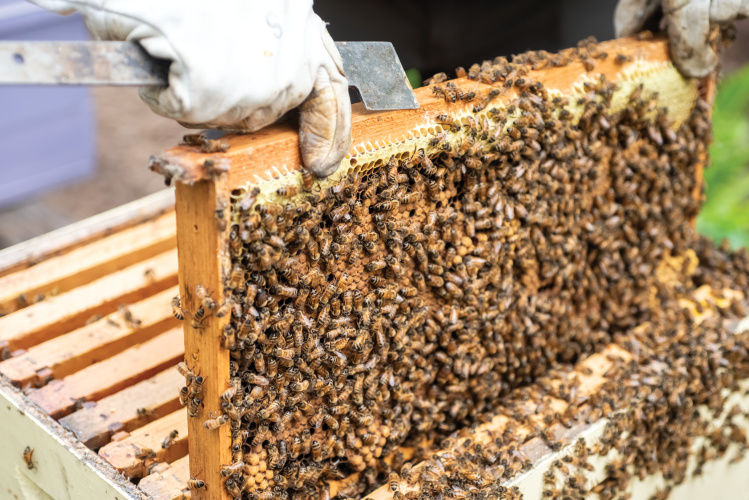
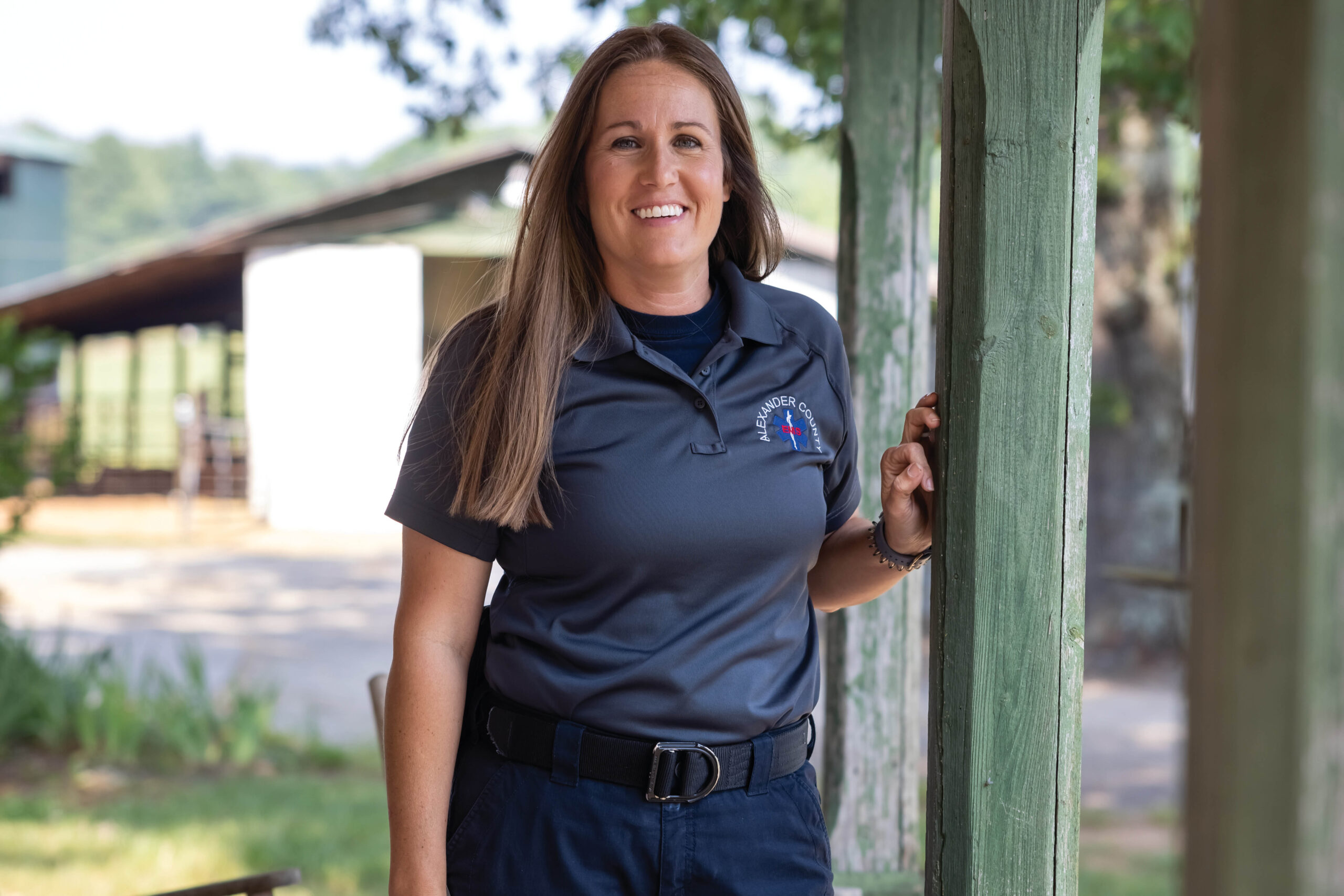

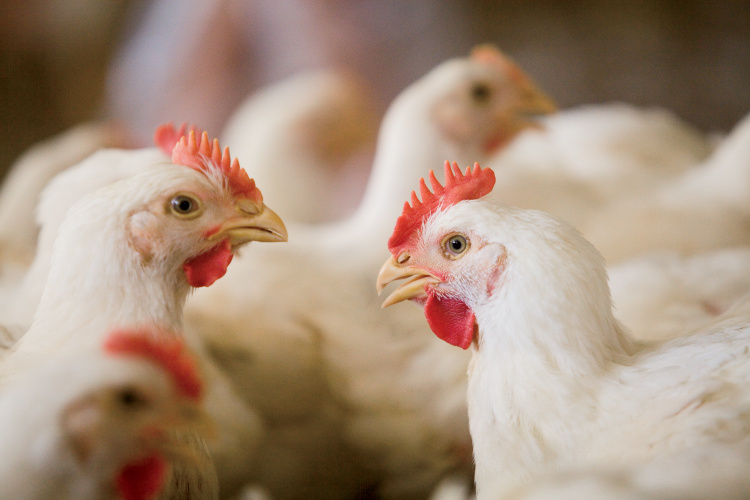

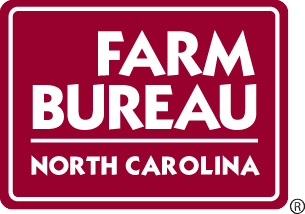
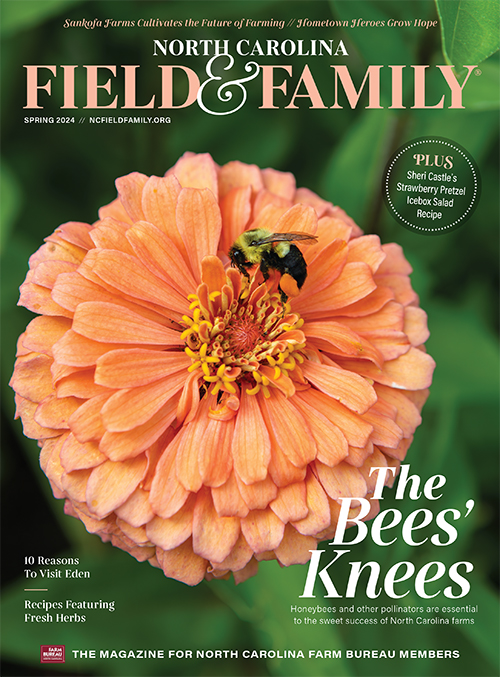 North Carolina Field and Family magazine highlights farms and foods, events and attractions, and interesting people and places throughout the state.
North Carolina Field and Family magazine highlights farms and foods, events and attractions, and interesting people and places throughout the state.
Leave a Comment